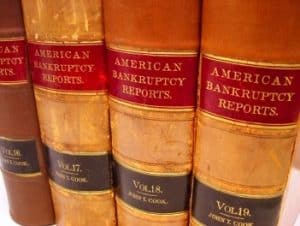
Had someone send me a question about a bankruptcy to clear all debt. What they were talking about was filing for Chapter 7 bankruptcy. A Chapter 7 bankruptcy is designed to wipe out most if not all of your unsecured debts (debts that are not somehow tied to property). Where a Chapter 13 bankruptcy can help you create a repayment plan to repay those debts.
If you are looking for a fast and efficient way to wipe out your debts then a Chapter 7 bankruptcy can be a good place to start. If you want to keep your house and car and other assets you may own, but are behind on the payments, then a Chapter 13 might be the better option. There are certain debts that bankruptcy will be able to wipe out completely and others that will not be able to wipe out or discharged by bankruptcy. Dischargeable debts include credit card debt (unless it is a secured credit card), medical debts, personal loans, outstanding utility bills, most lawsuits, and older income taxes that will qualify as non priority debts. Debts that bankruptcy can’t clear out are student loans (most of the time, unless you can prove that it would cause severe financial hardship), childcare support and alimony, criminal penalties, some taxes, charges from drunk driving, and other types of nondischargeable debts. If you file for a Chapter 7 bankruptcy then these kinds of debts will still remain once the bankruptcy is over and you will have to pay them. A Chapter 13 will allow you to create a repayment plan so you can pay back these nondischargeable debts over time.
Which bankruptcy is right for you? I have written on that subject before in this blog and have also posted a YouTube video on the subject. Bottom line is you need to speak with an experienced bankruptcy attorney to make that decision. In Utah call us for a consultation and outside Utah use the NACBA website.